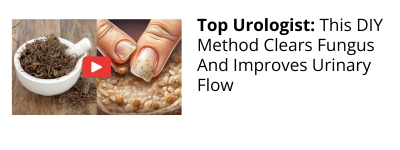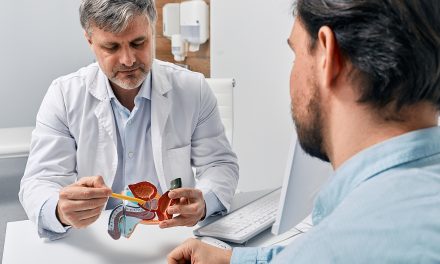The prostate is a small gland vital to the male reproductive system, but with age, it often grows larger, potentially affecting urination. This enlargement, known as benign prostatic hyperplasia (BPH), can compress the urethra and restrict the flow of urine from the bladder. As men get older, they may experience various urinary symptoms, such as a weak urine stream or the urgent need to urinate, particularly at night.

Understanding how the prostate functions and the interventions available for prostate-related urinary issues is essential. If experiencing urinary symptoms, early diagnosis can lead to effective management, including lifestyle changes, medication, or surgery. It’s critical not only to manage symptoms but also to be aware of the potential complications that an untreated enlarged prostate can pose, such as urinary tract infections and kidney damage. Moreover, maintaining communication with healthcare professionals ensures informed decision-making regarding one’s health.
Key Takeaways
- The prostate plays a crucial role in urination and can cause urinary issues when enlarged.
- Timely intervention can effectively manage urinary symptoms due to prostate conditions.
- Ongoing communication with healthcare professionals is critical for proper prostate health.
Understanding the Prostate’s Role in Urination
The prostate gland is critical in both the urinary and reproductive systems. Anatomically, it sits below the bladder and encircles the urethra—the tube responsible for carrying urine from the bladder out of the body. The prostate’s primary function in the reproductive system is to produce and add fluid to semen, which carries sperm.
In terms of urination, when the prostate is healthy, it maintains an open channel in the urethra, allowing urine to pass freely from the bladder. However, if the prostate enlarges—a condition known as benign prostatic hyperplasia (BPH)—it can press against and narrow the urethra. This constriction can lead to various urinary symptoms, such as:
- Difficulty starting urination
- A weak or intermittent urinary stream
- Frequent urination, particularly at night
- An inability to empty the bladder
Treatment for prostate-related urination issues varies depending on the severity of symptoms. Options range from lifestyle changes and medication to minimally invasive procedures or surgery. For those with BPH, medications can help relax the muscles of the prostate and bladder neck or shrink the prostate, improving urine flow. Meanwhile, surgical solutions aim to remove or reduce the portion of the prostate that is causing obstruction.
Simple pelvic floor exercises may assist in managing milder symptoms. These exercises strengthen the muscles around the bladder and urethra, potentially enhancing control over urination.
To sum up, the prostate has a significant role in both semen production and maintaining proper urine flow. It is when the prostate becomes enlarged that one may encounter issues with urination, for which various treatments are available.
Common Prostate Conditions Affecting Urination
Various prostate conditions can significantly influence the way a man urinates. These conditions, which include Benign Prostatic Hyperplasia (BPH), prostate cancer, and prostatitis, may affect urination, ranging from mild inconvenience to severe impairment.
Benign Prostatic Hyperplasia (BPH)
Benign Prostatic Hyperplasia, commonly referred to as an enlarged prostate, is a noncancerous increase in the size of the prostate gland. This enlargement can press against the urethra and restrict urine flow, resulting in symptoms such as difficulty starting urination, a weak urine stream, or frequent urination, especially at night. According to Mayo Clinic, those with BPH might also experience a sudden urge to urinate and difficulty completely emptying the bladder.
Prostate Cancer
Prostate cancer may present with urinary symptoms similar to BPH, as the growth of a tumor can apply pressure to the urinary tract. Symptoms can include a diminished urine stream, urinary retention, or hematuria—blood in the urine. However, early prostate cancer may not cause significant urinary symptoms at all. Treatment varies widely based on the stage and aggressiveness of the cancer and may involve surgery, radiation, hormone therapy, or other approaches.
Prostatitis
Prostatitis is inflammation of the prostate gland, usually because of an infection. It can present with several acute or chronic symptoms affecting one’s urination. These symptoms often include a burning sensation while urinating, urgency, and pain in the pelvic area, per information from the Mayo Clinic. The condition is usually treated with antibiotics if a bacterial infection causes it, and treatment can also include medications to relax the bladder neck or muscle relaxants.
Symptoms of Prostate-Related Urinary Issues
Prostate-related urinary issues, often resulting from an enlarged prostate or benign prostatic hyperplasia (BPH), can manifest various symptoms that affect a person’s quality of life. Patients typically express concerns about changes in their urination patterns. Notably, these changes include:
- Difficulty Starting to Urinate: A common complaint is a hesitation or delay when urinating.
- Weak Urine Stream: The urine flow may be feeble, or it might stop and start.
- Increased Urinary Frequency: Urinating more often than usual may be needed, even when fluid intake is regular.
- Nocturia: This term refers to the need to wake up and urinate during the night, often multiple times.
- Urinary Retention: One might experience a feeling of incomplete bladder emptying.
- Dribbling: After urination, there may be an involuntary release of a small amount of urine.
- Incontinence: The loss of bladder control can lead to unexpected leakage.
- Frequent Urination: The need to urinate many times during the day, sometimes hourly.
Evidence suggests that these symptoms arise because an enlarged prostate gland can obstruct the flow of urine through the urethra, which is the tube that carries urine out of the body. Managing these symptoms may involve various treatments, ranging from medication to surgical interventions, depending on the severity and impact on the individual’s life. It is critical for anyone experiencing these symptoms to consult a healthcare professional for an accurate diagnosis and appropriate treatment plan.
Diagnosing Prostate-Related Urinary Problems
When a man experiences urinary issues, a physician may perform several diagnostic tests to determine if the prostate is the underlying cause. These tests help pinpoint the nature of the problem and guide appropriate treatment.
Digital Rectal Exam (DRE)
During a Digital Rectal Exam (DRE), the doctor inserts a gloved, lubricated finger into the rectum to feel the size, shape, and texture of the prostate. This exam can reveal physical abnormalities such as enlargement or nodules that may indicate benign prostatic hyperplasia (BPH) or prostate cancer.
PSA Test
A PSA Test measures the level of prostate-specific antigen in the blood. Elevated PSA levels can be a sign of prostate cancer, an enlarged prostate, or prostatitis. However, PSA levels can also be affected by other factors, and not all high PSA levels are due to prostate problems.
Urinalysis
Urinalysis involves laboratory testing of a urine sample. It helps detect signs of infection, blood, or other abnormalities associated with prostate issues. The results may indicate the need for further prostate examinations or may help rule out other urinary conditions.
Medical and Surgical Treatment Options

Effective management of prostate-related urinary issues can involve a range of treatment options, from medications to surgery. Here is an overview of the available medical and surgical interventions for prostate conditions that affect urination.
Medications
Minimally Invasive Procedures
For those who do not respond well to medication, minimally invasive procedures may be considered. Transurethral microwave thermotherapy uses microwaves to heat and destroy excess prostate tissue. On the other hand, laser surgery, such as Holmium laser enucleation of the prostate (HoLEP), excises obstructive prostate tissue using laser energy, which often results in less bleeding and a quicker recovery.
Surgery
Surgical intervention may be necessary when symptoms are severe or other treatments fail. Transurethral resection of the prostate (TURP) remains a standard procedure, where a resectoscope is used to trim away excess prostate tissue. In more advanced cases, an open prostatectomy, which involves making an incision to remove prostate tissue, may be required. This option is typically reserved for very large prostates or when other conditions are present.
Potential Complications and Risks

When the prostate is enlarged, such as in benign prostatic hyperplasia (BPH), the condition can lead to several complications directly impacting urination and overall urinary tract health. A common repercussion is urinary retention—the inability to empty the bladder, which might necessitate using a catheter for urine drainage.
Protracted urinary retention can precipitate urinary tract infections (UTIs), which, if recurrent, could further exacerbate the condition. Additionally, there’s a chance of developing bladder stones—hardened mineral deposits due to concentrated urine resulting from incomplete bladder emptying.
Moreover, long-term strain on the bladder may escalate into kidney damage, a severe healthcare concern, due to the backflow of urine towards the kidneys. A vital point to note is that while an enlarged prostate doesn’t directly increase the occurrence of prostate cancer, it is a disorder that commonly affects older people with prostate. One should remain vigilant about urinary symptoms that persist or worsen.
The risk factors for prostate-related complications include lifestyle choices and genetic predispositions. Specifically, obesity has been associated with an increased risk of BPH, while exercise may lower this risk. A family history of prostate issues also plays a significant role in individual risk profiles.
| Risk Factor | Potential Complication |
|---|---|
| Prostate Enlargement | Urinary Retention |
| Urinary Retention | UTIs, Bladder Stones |
| Persistent Strain | Kidney Damage |
| Family History | Higher Predisposition |
In summary, these complications exhibit a domino effect where one unresolved issue could lead to another, more severe condition. Monitoring and proactive management are essential to mitigate such health risks.
Impact on Sexual Function and Fertility

Prostate enlargement can have various effects on a man’s sexual function. It often coexists with a decline in sexual performance and satisfaction. One of the side effects can be retrograde ejaculation, where semen enters the bladder instead of being expelled during ejaculation. This can be concerning because while it doesn’t typically affect pleasure, it can influence fertility. Certain medications for prostate issues, such as tamsulosin, are known to reduce ejaculate volume, and a significant number of men may even experience an absence of ejaculation.
Erectile dysfunction (ED) is another potential concern linked to prostate health. While an enlarged prostate is not a direct cause of ED, the two conditions may share common risk factors such as aging and comorbid conditions like cardiovascular disease.
- Ejaculation: Changes in ejaculation may occur, including decreased force or volume of semen.
- Fertility: Complications such as retrograde ejaculation can affect the ability of sperm to reach the female reproductive tract, impacting fertility.
For those experiencing these side effects, it’s essential to consult a healthcare provider. They can offer options, including medications, lifestyle changes, or procedures to alleviate symptoms. Addressing these issues promptly can improve a man’s quality of life and help avoid potential complications.
Preventative Measures and Lifestyle Management

Maintaining a healthy prostate and mitigating urinary issues involves proactive lifestyle changes and, when appropriate, a strategy known as watchful waiting. These measures can significantly influence one’s prostate health and alleviate or prevent urinary complications.
Lifestyle Changes
Diet: Studies suggest that reducing the intake of dairy products can be beneficial for prostate health. Men who consume fewer dairy products like milk, cheese, and yogurt may have a lower risk of prostate cancer. Instead, choosing healthful fats like those in olive oil, nuts, and avocados while limiting saturated fats and avoiding trans fats is recommended. Furthermore, reducing sugar-sweetened drinks and treating sweets as an occasional indulgence is advisable.
Exercise: Regular physical activity supports overall health and can help maintain a healthy weight, which is crucial considering that obesity is linked to an increased risk of benign prostatic hyperplasia (BPH) and other prostate issues.
Smoking and Alcohol: Quitting smoking may lower the risk of developing prostate issues. Similarly, moderating alcohol consumption is part of a holistic approach to prostate health management.
Watchful Waiting
Watchful waiting refers to a monitoring strategy for men with mild prostate conditions who are not experiencing significant symptoms. Instead of immediate medical or surgical intervention, they and their healthcare providers may opt for periodic monitoring, acknowledging that some prostate conditions may not progress significantly over time. This approach avoids the potential side effects of treatment as long as it’s closely managed and symptoms are not adversely affecting quality of life.
Understanding the Role of Diet and Nutrition

Diet and nutrition significantly impact prostate health. Specific dietary choices can either exacerbate or mitigate issues related to an enlarged prostate and its effect on urination.
Foods to Avoid
Certain foods and ingredients may contribute to prostate inflammation and worsen urinary symptoms:
- Red and processed meats: High in saturated fats, these meats can increase the risk of an enlarged prostate.
- Dairy products: Large amounts of dairy might be linked to a higher chance of prostate issues.
- Caffeine and alcohol: They can stimulate increased urine production and irritate the bladder.
- Spicy and acidic foods: Hot peppers can irritate the bladder and exacerbate urinary symptoms.
Foods to Include
Incorporating specific foods into one’s diet may improve prostate health and alleviate urination problems:
- Fruits and vegetables: A nutrient-rich diet with various fruits and vegetables can support overall prostate health.
- Healthy fats: Foods high in omega-3 fatty acids, like salmon, can be beneficial.
- Lemon and apricot: These fruits can offer vital nutrients without exacerbating urinary issues.
- Obesity reduction: Maintaining a healthy weight through diet can reduce pressure on the prostate and alleviate symptoms.
When to Consult a Healthcare Professional

It’s often advisable for individuals to seek medical advice from a healthcare professional or urologist if specific urinary symptoms begin to disrupt daily life. Here is a concise list of signs that warrant a consultation:
- Persistent discomfort or difficulty: If someone consistently struggles to start urination or experiences pain, a healthcare visit is recommended.
- Changes in urinary pattern: Sudden urges, frequent nighttime urination, or changes in the stream’s strength may indicate a prostate issue.
- Visible signs: Blood in urine is a severe symptom that should prompt immediate medical attention.
Urinary Retention: If they cannot urinate, immediate care is crucial. Health professionals can evaluate the need for treatment, ranging from medication to surgery.
If symptoms are mild but persistent, or uncertainty about their severity, it’s still a sound decision to reach out to a healthcare provider. They can track symptoms over time and determine if proactive steps are necessary.
Conversely, emergency care is essential when one is unable to urinate at all or experiences severe pain or discomfort. Here, immediate intervention can prevent more severe complications.
Remember, early intervention by a doctor can often lead to better management or resolution of prostate-related urinary issues.
Frequently Asked Questions

The prostate plays a crucial role in the urinary system, and its enlargement—often seen as benign prostatic hyperplasia (BPH)—can significantly alter urinary function. This section addresses common questions on how the prostate affects urination and the ways to manage related symptoms.
What role does the prostate play in male urinary function?
The prostate gland encircles the urethra, and its primary role is to produce fluid for semen. However, its size and health directly influence urinary function. An enlarged prostate can press against the urethra, causing difficulty in urination.
Can benign prostatic hyperplasia (BPH) be a reason for sexual dysfunction?
While BPH primarily affects urinary function, it can sometimes be associated with sexual dysfunction. Patients may experience symptoms like reduced sexual drive and difficulty achieving an erection, potentially due to the shared pathways of urinary and sexual functions.
What are the most effective therapeutic interventions for managing an enlarged prostate?
Treatment options for BPH vary from medication, such as alpha-blockers, to surgical procedures like transurethral resection of the prostate (TURP). Treatment choice depends on the severity of symptoms and the patient’s overall health.
What are some natural methods to alleviate the symptoms of an enlarged prostate?
Men may seek natural remedies to alleviate BPH symptoms, which include regular exercise, a balanced diet, and the consumption of certain plant extracts or supplements known to benefit prostate health.
What approaches can men take to improve urine flow if they have BPH?
Approaches for improving urine flow in men with BPH include practicing “double voiding,” staying active, and avoiding fluids before bedtime. Medications can also help relax bladder muscles and shrink the prostate.
Aside from pharmacological solutions, what lifestyle changes can aid in reducing prostate enlargement?
Lifestyle changes that can assist in managing BPH include reducing caffeine and alcohol intake, achieving and maintaining a healthy weight, and focusing on pelvic-strengthening exercises. These adjustments can help alleviate some pressure on the bladder and improve urinary symptoms.















